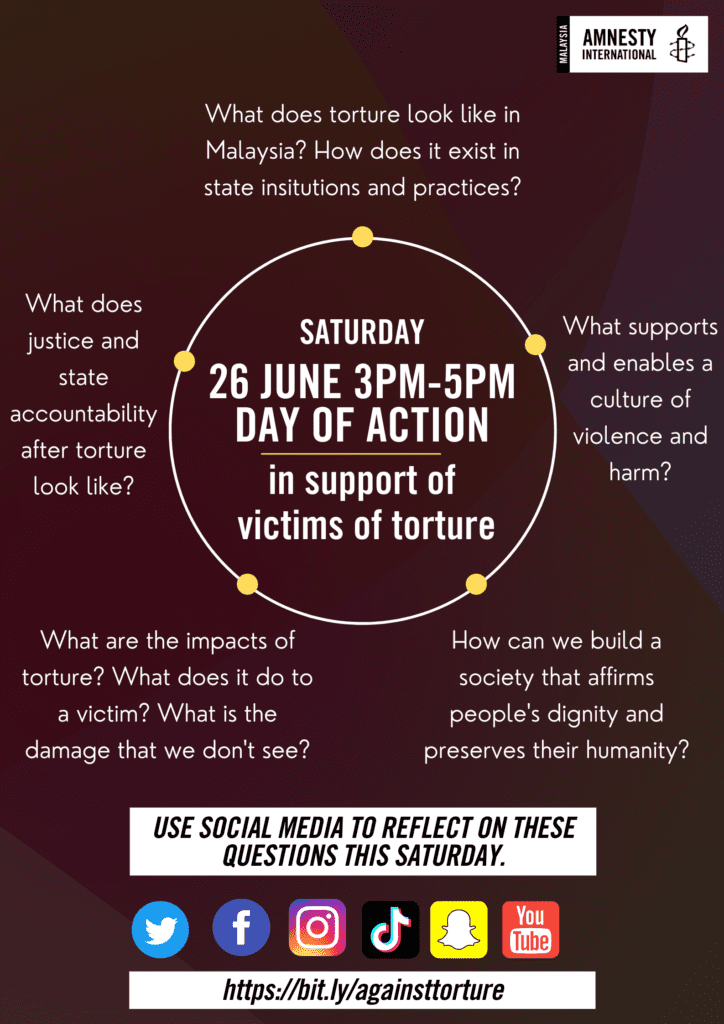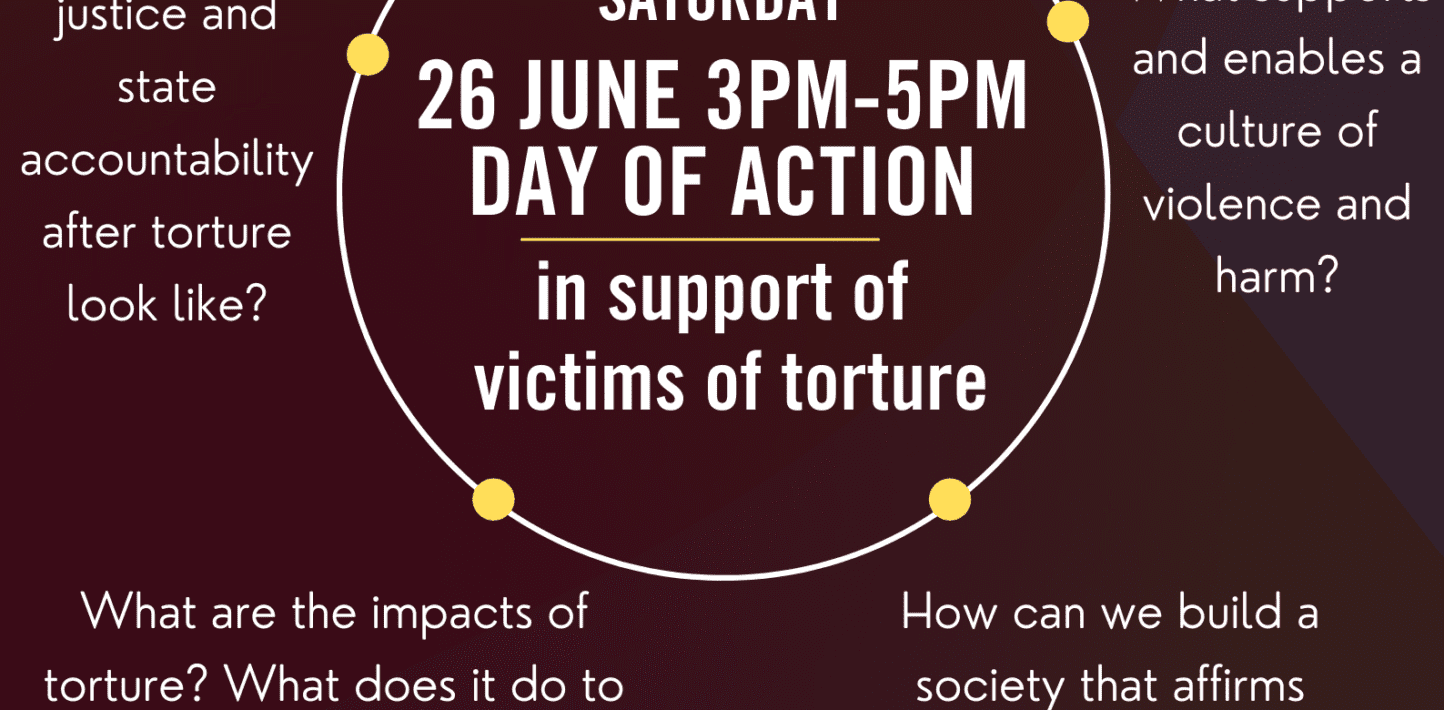
At first glance, many people might not initially associate torture with the Malaysian state. On the international stage, Malaysia touts its symbols of development and progress.Yet, scratch underneath the surface, and you’ll find that torture is widespread and rampant, embedded in the infrastructure of many state institutions including police, prisons, , immigration detention centres, and more.
What is torture? How does it manifest? Torture is when somebody in an official capacity inflicts severe mental or physical pain or suffering on somebody else for a specific purpose. Sometimes authorities torture a person to extract a confession for a crime, or to get information from them. Sometimes torture is simply used as a punishment that spreads fear in society.
Torture methods vary. They can be of a physical nature, like beatings and electric shocks. It can be of a sexual nature, like rape or sexual humiliation. Or they can be of a psychological nature, like sleep deprivation or prolonged solitary confinement.
Under international law, torture and other forms of ill-treatment are always illegal. They have been outlawed internationally for decades.
But just in the past months in Malaysia, we’ve witnessed the deaths of four Indian men in police custody; claims of torture—including the use of chilli powder on genitals—of a group of men arrested for years under SOSMA; the mass raids, chaining, and detention of migrants and refugees.
These events are chilling and unconscionable, and led to public outcry. But the practice of torture isn’t new in Malaysia. Torture has been inflicted against the most marginalised communities: detainees, migrants, LGBTQIA communities, indigenous peoples, and the poor in many ways over the years. Malaysia has openly practised torture and other ill-treatment by subjecting thousands of refugees, migrants and Malaysian citizens to judicial caning each year, tearing into the flesh of prisoners with rattan canes travelling up to 160 kilometres per hour.
In 2012, detainees from Kamunting detention camp, where Internal Security Act detainees wereheld, described how torture was used as an interrogation method. They listed out being forced to strip down to their underwear, and ‘hung’ upside down from a ‘machine’ which moves around the “torture room;” hot oil being poured on their genitals; and the burning of their genitals with cigarettes.
For victims and their families, the effects of torture are long-lasting. In addition to physical suffering and mental anguish, the inability to seek justice and accountability becomes another source of ongoing trauma.
These acts of torture are propped up by smaller decisions that create a larger harm-enabling culture. These may include discriminating stereotypes, misreporting in the media, a culture of silence and normalising punishment, a lack of transparent information about our public institutions, and more.
Understanding that torture doesn’t just exist in the moment it is inflicted, but sits within a broader infrastructure of violence made up of policies, cultures, beliefs, powers. We need to identify the factors, see the patterns and address both the individual cases of torture and the system that enables it. Justice requires reparation of the harm and prevention of future harms too.
This 26th June, on the International Day in Support of Victims of Torture, between 3PM-5PM, we are hosting a Day of Action on social media. We call on Malaysians and those living in Malaysia not to look away. We would like to ask you or your organisation to please reflect on these questions and to post something in response:
- How does torture happen in Malaysia?
- What supports and enables a culture of violence and torture?
- How can we build a torture-free society, one that affirms people’s dignity and preserves their humanity?
Post your reflections (text, photo, video, poem, artwork, or other creation) to these questions on social media, using the hashtag #EndTortureNow #DontLookAway. You may also consider using other hashtags that call for specific mechanisms such as #IPCMCnow and #ACT4CAT.
Please direct any questions to [email protected].


